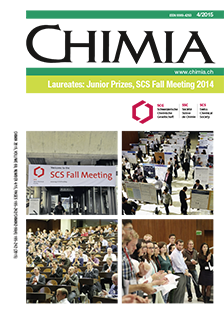Instrumentino: An Open-Source Software for Scientific Instruments
DOI:
https://doi.org/10.2533/chimia.2015.172Keywords:
Arduino, Computer-control of experiments, Data acquisition, Graphical user interface, Purpose-made instruments, PythonAbstract
Scientists often need to build dedicated computer-controlled experimental systems. For this purpose, it is becoming common to employ open-source microcontroller platforms, such as the Arduino. These boards and associated integrated software development environments provide affordable yet powerful solutions for the implementation of hardware control of transducers and acquisition of signals from detectors and sensors. It is, however, a challenge to write programs that allow interactive use of such arrangements from a personal computer. This task is particularly complex if some of the included hardware components are connected directly to the computer and not via the microcontroller. A graphical user interface framework, Instrumentino, was therefore developed to allow the creation of control programs for complex systems with minimal programming effort. By writing a single code file, a powerful custom user interface is generated, which enables the automatic running of elaborate operation sequences and observation of acquired experimental data in real time. The framework, which is written in Python, allows extension by users, and is made available as an open source project.Downloads
Published
2015-04-29
Issue
Section
Scientific Articles
License
Copyright (c) 2015 Swiss Chemical Society

This work is licensed under a Creative Commons Attribution-NonCommercial 4.0 International License.
How to Cite
[1]
Chimia 2015, 69, 172, DOI: 10.2533/chimia.2015.172.







